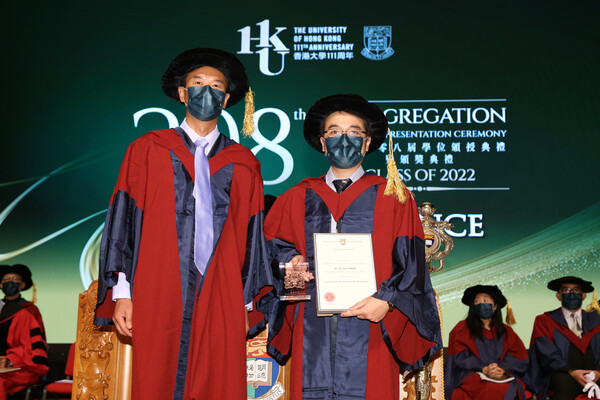FACULTY AWARD
Faculty Knowledge Exchange (KE) Award 2022
‘Statistics plays a vital role in formulating public policies by effectively harnessing the power of data using a scientific approach to achieve the desired outcome.’

Dr Eddy Lam
Associate Professor, Department of Statistics and Actuarial Science
It is a worldwide trend that people live longer, and the population is ageing. The Hong Kong elderly population aged 65 and over reached 759,200 (11.2%) in 2000*, accounting for a disproportionately high proportion of total health care spending: 60% of outpatient clinic services and 40% of hospital beds provided by the government were utilised by the elderly. The elderly population grew by over 90% to 1.451,514 (19.5%) in 2021. The total health expenditure is expected to increase by 365% from $67.8 billion in 2004 to $315.2 billion in 2033 with ageing effect accounting for about 50% of the growth rate.
There were about 20,000 elderly persons on the waiting list for government-subsidised residential care services in year 2000. The application date was the main factor in determining the order of service provision. People with more care needs did not have priority over those with fewer needs. Moreover, applicants were required to be assessed by referring agents, healthcare professionals and service providers using different tools to confirm their eligibility and suitability for the services.
Dr Eddy LAM and his team including Dr Chi Wai KWAN of Department of Statistics and Actuarial Science, developed a comprehensive assessment tool, MDS-HC(HK), to evaluate the health outcomes and care needs of Hong Kong Chinese elders. Optimal classification algorithms were derived for efficient service matching using advanced statistical methods. The instrument was adopted by Hong Kong’s Social Welfare Department as the Standardised Assessment for Elderly Services to ascertain the care needs of elders and match them with timely, appropriate services. It facilitates the prioritisation of services to the neediest and most effective allocation of public resources. About 160,000 assessments have been completed using MDS-HC(HK) since October 2013, with an estimated savings of over HKD 5.5 billion during this period. More importantly, elders have had better health outcomes and improved quality of life.
*Details of the Journal Paper:
‘Validation of Minimum Data Set for Home Care Assessment Instrument (MDS-HC) for Hong Kong Chinese Elders.’
C.W. Kwan, I. Chi, T.P. Lam, K.F. Lam & K.L. Chou. Clinical Gerontologist, 21(4), 2000, pp 35-48.


